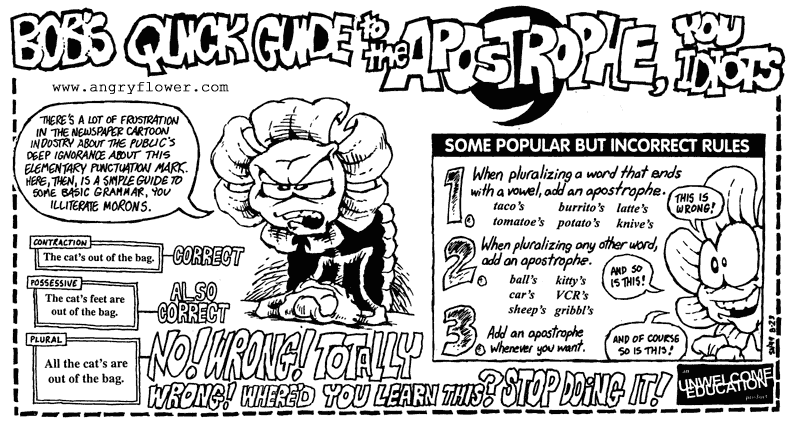Mr. Checks
Distinguished Member
- Joined
- Mar 12, 2006
- Messages
- 1,253
- Reaction score
- 2
Periods and commas go inside the quotation marks.
STYLE. COMMUNITY. GREAT CLOTHING.
Bored of counting likes on social networks? At Styleforum, you’ll find rousing discussions that go beyond strings of emojis.
Click Here to join Styleforum's thousands of style enthusiasts today!
Styleforum is supported in part by commission earning affiliate links sitewide. Please support us by using them. You may learn more here.
Periods and commas go inside the quotation marks.Originally Posted by Mr. Checks
At least for American grammar. It seems to me somewhat illogical. Should the period to follow really be inside the quotation marks: I enjoy Marlowe's "Hero and Leander." I think not.Originally Posted by whoopee
I think this was on the thread we lost, and I disagree that it is a hard-and-fast rule. "Hicks", "rednecks", and "the unsophisticated" prefer inferior service. When words/phrases are in scare quotes, or are in quotation marks to denote the unusual use of the word, or as a citation, etc., I don't think the commas should be in the quotes. (do not check this sentence for parallel construction Bob) "I have begun," he said, "to go insane." In this case, it makes sense to me. However, if the quotation itself doesn't include a comma or the end of a sentence, why would it be in the quotation marks?Originally Posted by j
Ah, but it does not.Which begs the question
Ah, but it does not.Originally Posted by shoreman1782
Some rules that are taught as standard come from the AP style guide or have other publishing provenance, and the point of some of these rules is saving space on paper. Luckily, on the internets, we don't have to worry about that.Originally Posted by shoreman1782


 LuxeSwap Auction - Vintage Antique United States Naval Navy Denim Deck Jacket A piece for denim heads, vintage collectors, streetwear enthusiasts and menswear enthusiasts alike, this extremely rare early US Naval issued deck jacket in raw denim is not likely to ever show up at auction again anytime soon. A Haleys Comet of menswear items, offered at auction at a $9.99 starting bid with no reserve.
LuxeSwap Auction - Vintage Antique United States Naval Navy Denim Deck Jacket A piece for denim heads, vintage collectors, streetwear enthusiasts and menswear enthusiasts alike, this extremely rare early US Naval issued deck jacket in raw denim is not likely to ever show up at auction again anytime soon. A Haleys Comet of menswear items, offered at auction at a $9.99 starting bid with no reserve.  Wellington Chore Boot - Special Introductory Price! $495 Introducing the latest addition to Nicks Handmade Boots collection: The Wellington Chore Boot. Engineered for the rigors of daily tasks, this boot is more than just footwear; it's a reliable companion for your everyday adventures. Crafted with convenience in mind, its effortless pull-on design ensures you're always ready to tackle whatever the day throws your way.
Wellington Chore Boot - Special Introductory Price! $495 Introducing the latest addition to Nicks Handmade Boots collection: The Wellington Chore Boot. Engineered for the rigors of daily tasks, this boot is more than just footwear; it's a reliable companion for your everyday adventures. Crafted with convenience in mind, its effortless pull-on design ensures you're always ready to tackle whatever the day throws your way.